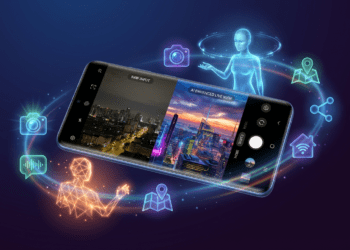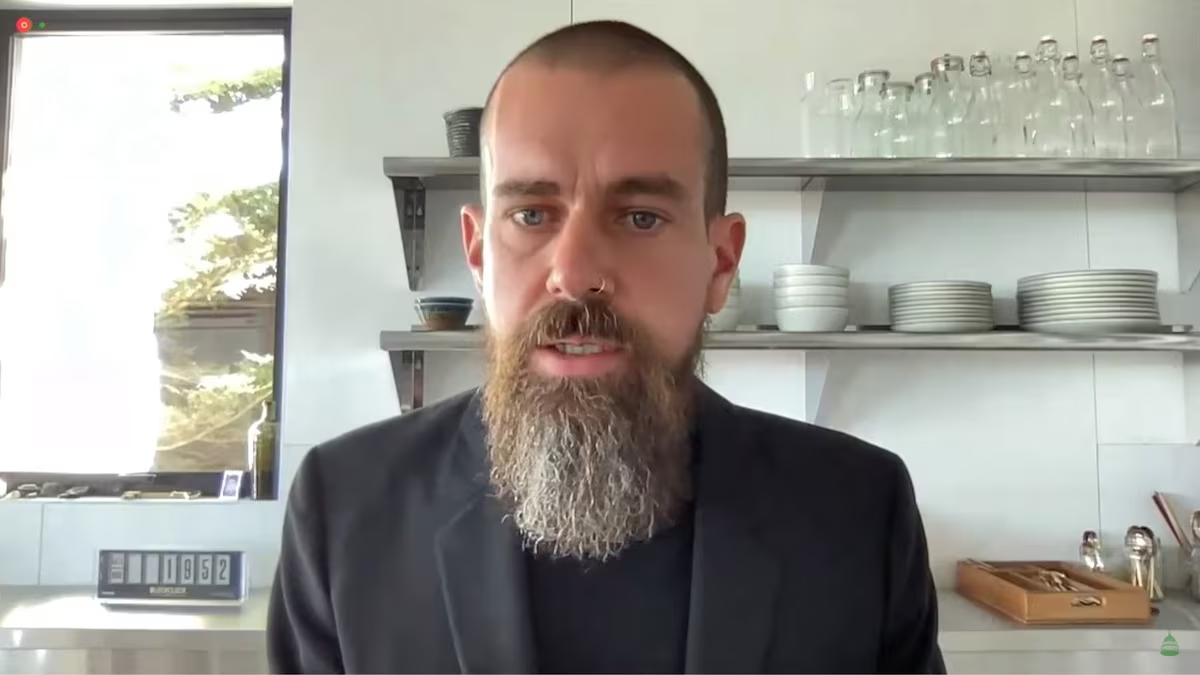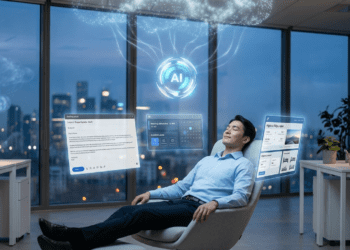The Surprising Confession That Shook Silicon Valley

President Donald Trump made a startling admission this week that sent ripples through the tech industry. Speaking at an AI summit in Washington, D.C., Trump revealed he once considered breaking up NVIDIA despite never having heard of the company or its CEO Jensen Huang.
“I said, ‘Look, we’ll break this guy up,’ before I learned the facts of life,” Trump confessed during his speech unveiling the new AI Action Plan. The revelation exposed just how dramatically the relationship between America’s most powerful politician and its most valuable tech company has evolved.
What makes this confession particularly striking is NVIDIA’s current status. The chipmaker recently became the first company in history to surpass a $4 trillion market valuation, cementing its position as the world’s most valuable technology company. Yet Trump’s initial reaction was to simply “break them up a little bit.”
The Moment of Realization
Trump’s candid recounting of his conversation with advisors painted a picture of genuine surprise at NVIDIA’s market dominance. When he asked about the company’s market share, he was told Jensen Huang controlled “100%” of the market.
“I said, ‘Who the hell is he? What’s his name?'” Trump recalled. “‘His name is Jensen Huang, NVIDIA.’ I said, ‘What the hell is NVIDIA? I’ve never heard of it before.'”
The president’s advisors quickly educated him about the reality of competing with NVIDIA. When Trump suggested assembling “the greatest minds” to work together for a couple of years to catch up, he was told it would take at least ten years to match NVIDIA even if Huang ran the company “totally incompetently from now on.”
This sobering assessment led Trump to abandon his breakup plans. “I found out it’s not easy in that business,” he admitted, acknowledging the unique challenges of the semiconductor industry.
From Threat to Praise
The transformation in Trump’s attitude toward NVIDIA and Jensen Huang has been remarkable. During the same speech where he confessed to wanting to break up the company, Trump lavished praise on Huang, who was sitting in the audience.
“And then I got to know Jensen, and now I see why,” Trump said, inviting the NVIDIA CEO to stand up for recognition. “What a job you’ve done,” he added, highlighting the dramatic shift from antagonist to admirer.
This change didn’t happen overnight. Jensen Huang met with Trump at the White House earlier this month, engaging in what sources described as productive discussions about AI policy and trade relations.
The China Connection
One of the most significant outcomes of Huang’s relationship-building with Trump has been the reversal of chip export restrictions to China. The Trump administration recently lifted restrictions on NVIDIA’s H20 AI chip exports to China, allowing the company to sell these specialized chips in the lucrative Chinese market.
This policy reversal came after months of lobbying by Huang, who argued that restricting chip sales would hurt U.S. technological leadership by allowing Chinese rivals to dominate the market. According to reports, Huang testified before Congress and worked closely with White House allies, including AI adviser David Sacks.
Commerce Secretary Howard Lutnick has defended the decision by insisting that the chips being sold to China are only the “fourth-best” AI chips. The strategy, he explained, is to get Chinese developers “addicted to the American technology stack” while maintaining U.S. technological superiority.
The Market Reality Check

Trump’s initial ignorance about NVIDIA highlights a broader disconnect between political leadership and the rapidly evolving tech landscape. When he first considered breaking up the company, NVIDIA was already dominating the AI chip market with what his advisors described as near-monopoly control.
The company’s meteoric rise has been driven by the AI boom and its near-monopoly on AI chip manufacturing. NVIDIA’s graphics processing units (GPUs) are used by all major tech companies to maintain and develop AI models, making it an indispensable player in the global AI race.
This market position has made NVIDIA a key player in global tech geopolitics, particularly as governments scrutinize the export of advanced semiconductor technology amid rising U.S.-China tensions.
The Antitrust Implications
Trump’s about-face on NVIDIA has significant implications for antitrust enforcement. Under the Biden administration, the Justice Department had reportedly been probing the company on antitrust grounds. However, Trump’s apparent change of heart means we probably shouldn’t expect a lawsuit anytime soon.
This shift reflects a broader change in how the Trump administration views big tech companies, particularly those seen as crucial to maintaining America’s competitive edge in artificial intelligence and semiconductors.
The Broader AI Strategy
Trump’s new AI Action Plan, unveiled at the same event where he made his NVIDIA confession, sets out three clear goals: accelerate AI innovation by cutting red tape and regulation, build up American AI infrastructure, and encourage the use of American AI technology among allies and friendly nations.
The 20-page document represents a significant departure from the Biden administration’s approach, which emphasized export controls as a “new strategic asset” to help the U.S. maintain “as large a lead as possible” over China in advanced technology.
Industry Reactions and Implications
The tech industry has watched Trump’s evolution on NVIDIA with keen interest. As reported by Tom’s Hardware, Trump’s admission that he “didn’t even know what it was” when he first considered breaking up NVIDIA has raised questions about the level of technical expertise informing major policy decisions.
The revelation also highlights the importance of corporate relationship-building in Washington. Huang’s successful cultivation of ties with the Trump administration demonstrates how tech leaders can influence policy through direct engagement and education.
The Global Competition Context
Trump’s change of heart on NVIDIA comes as the global competition in AI and semiconductors intensifies. Huang has previously warned that U.S. chip export controls are a “failure” and that China is “right behind us” in AI development.
The NVIDIA CEO has maintained that restricting chip sales to China could backfire by motivating Beijing to develop its own semiconductor capabilities faster. His warnings appear to have resonated with the Trump administration, leading to the recent policy reversals.
Looking Forward

The Trump-NVIDIA relationship represents a fascinating case study in how political attitudes toward big tech can evolve. From initial hostility based on market dominance concerns to eventual partnership based on strategic national interests, the transformation reflects the complex realities of governing in the AI age.
As the global AI race continues to intensify, the relationship between political leaders and tech companies like NVIDIA will likely become even more crucial. Trump’s admission of his initial ignorance about NVIDIA serves as a reminder of the importance of informed policymaking in an increasingly complex technological landscape.
The story also underscores the power of personal relationships in politics and business. Huang’s successful transformation from potential target to trusted advisor demonstrates the value of direct engagement and education in shaping policy outcomes.
Sources
- The Verge: Trump wanted to break up Nvidia — but then its CEO won him over
- LiveMint: Donald Trump admits he wanted an Nvidia breakup but found out ‘it’s not easy in that business’
- Tom’s Hardware: President Trump threatened to break up Nvidia, didn’t even know what it was
- Fortune: Trump says he wanted to break Nvidia up—until he learned who Jensen Huang was
- Reuters: Nvidia CEO Huang to meet Trump before China trip
- CNBC: Jensen Huang says U.S. chip restrictions have cut Nvidia’s China market share nearly in half








